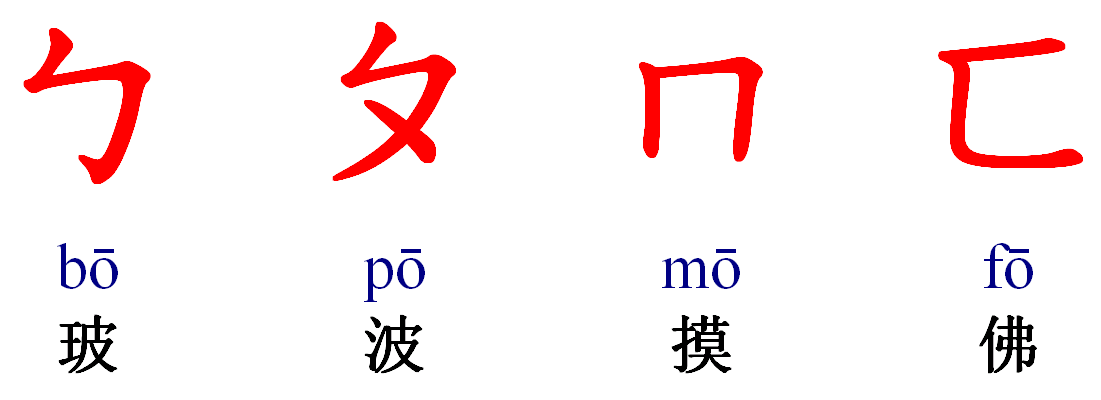Well, I cannot and all of the people I know cannot. When people do not travel, or travel only with someone who is Chinese who acts as an interpreter, and they have been here for years...Rock wrote:Well I have to disagree with you as I do not fall within 1-3 above. You don't need to have a native command of the language to use it effectively for meeting girls. There are many short cuts. I can tell you with conviction that I picked-up enough conversational Mandarin in 12-18 months so that I was able to use it effectively for meeting girls face-to-face and working them over the phone.
Perhaps, but I suggest that you have an unknown talent for Chinese, or that you live, work and speak in Taiwan or one of the large major coastal cities or only speak to educated audiences. If you were to drop into a suburb of Zhengzhou, they would not understand you at all.Within 2 years, I was able to use it for sales, business presentations, and radio interviews. And I am certainly no language genius like Ladislav.
You seem to have experience with Taiwan and Guangdong variants.
That is nothing compared to the language on the Mainland.
The most challenging aspect to practical verbal Mandarin for a native English speaking American are the tones.
Incorrect.
Once you learn the tones, you then speak and discover that in every Chinese town, village and city, there are variations on pronunciation and tonal usage. The Chinese repeat themselves all the time to each other, because they do not understand what was said. And they are L1. The tones are too large or 'gross' in effect to describe the subtleties of the actual speech. The only way to hear these and learn them is to live in country, in the area that you will be for many years, and speak only to those locals.
So if you learn to speak Mandarin from a tape series, you will find out that your pronunciation is not accurate to local standards, and they simply do not understand you, at all.
In China, speaking with an accent is speaking another language. The Chinese, LITERALLY cannot hear accented speech. It's just a buzzing sound of gibberish, and you believe you are clearly speaking.
They simply won't understand a single thing you say.
This has happened to me, and others I know, dozens of times travelling in country.
Only for absolute beginners. Chinese grammar becomes more complex as you learn more of the language. If you want to talk like a 3 year old child, then it is simple. If you wish to converse like an educated adult it is not.Fortunately, Mandarin is extremely simple grammar wise (no verb conjugations, articles, subject dependence, etc. The word order is mostly intuitive to us.
Adults speak in parables and metaphors, referencing one of the hundreds of Chinese texts they learned in school as a means of referring to a concept or situation.
If you do not know the story behind 'Kadir beneath Mo Moteh' or 'Shaka, when the walls fell', it's meaningless to you even with an accurate translation.
Many of the sounds are entirely different and some that do not exist. q, c, t, s, sh, x etc. B is not 'bee' it is 'bwuh'. And so on.And almost all the sounds used have a direct equivalent or very close approximation from American English.
Your assessment is simply incorrect. If you learn to speak so that locals understand you and you take a trip anywhere and get into a cab or try to purchase a bus or train ticket, you are speaking absolute gibberish to the local ear.But generally, if you get a handle on a standard version of Mandarin, you got China covered.
Many do not speak Standard Mandarin, and the local version of Mandarin differs from what you learn as Beijing/Office Dialect. Then there is the local village language, that you haven't a clue about. Local Slang, Local Mandarin Slang, Standard Dialect Slang, and then any regional language such as Sichuanese or Cantonese.
It's a nightmare.
China does NOT have 55 dialects.
It has THOUSAND'S.
Each village town and city, and in large cities there are many old areas that were separate towns long ago, has its own local language. This changes if you travel as few as 20 km. In some cities there are many areas. Wuhan is Wuhan, Hankou, Wuchang. And so on. Each with different local languages, accents, variations on Mandarin.
Again, I must point out that your standard is one of illiteracy as a goal.
Illiteracy being defined as not being able to read or write at a functional level.
That speaks volumes as to the difficulty of learning Chinese.
There are then several dozen other aspects of the language that you need to learn.
Chinese spend 10,000 hours from ages 3 to 23 learning Chinese.
You spent 1,500 hours from ages 6 to 16 learning English.
Language Exchange Partner:
In my experience, and the experience of ALL foreigners living in the local area, the Chinese never follow through. You cannot get anyone to commit to LE, they don't show up, they flake, they lie, they make excuses, they stop coming, they say that they will do it and then they just do...nothing. Nothing happens.
It doesn't matter how much money you offer them, they simply don't do it.
Big City China and Taiwan are very much different than the non-urban parts of the PRC.




